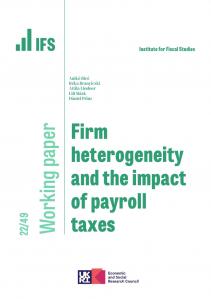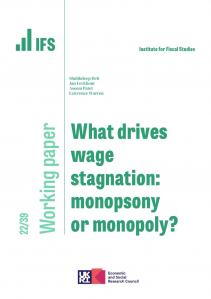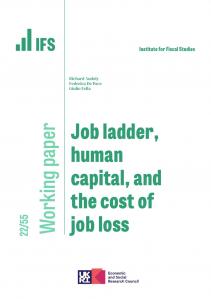Downloads

wp0612.pdf
PDF | 351.16 KB
This paper considers how competition can affect aggregate innovative activity through its effects on firms' decision whether or not to vertically integrate. A moderate increase in competition enhances innovation incentives, too much competition discourages innovative effort. These effects generates an inverted-U relationship between competition and innovation and between competition and the incentive to vertically integrate. Preliminary evidence finds that there is a non-linear relationship between competition and the propensity of firms to vertically integrate. These results seem to be more consistent with the Property Right Theory (PRT) of vertical integration than with the Transaction Cost Economics (TCE) approach.
Authors

CPP Co-Director, IFS Research Director
Rachel is Research Director and Professor at the University of Manchester. She was made a Dame for services to economic policy and education in 2021.

Research Fellow London School of Economics
Philippe is an IFS Research Fellow, a Professor of Economics at LSE, at the College de France and at INSEAD, and a Fellow at the Econometric Society.

Peter Howitt
Working Paper details
- DOI
- 10.1920/wp.ifs.2006.0612
- Publisher
- IFS
Suggested citation
P, Aghion and R, Griffith and P, Howitt. (2006). The U-shaped relationship between vertical integration and competition: theory and evidence. London: IFS. Available at: https://ifs.org.uk/publications/u-shaped-relationship-between-vertical-integration-and-competition-theory-and-evidence (accessed: 30 June 2024).
More from IFS
Understand this issue

Kwasi Kwarteng homes in on the right problems, but solutions don’t add up
26 September 2022

How do firms impact inequality?
16 June 2022

The NHS waiting list: when will it come down?
29 February 2024
Policy analysis

The Conservatives and the Economy, 2010–24
3 June 2024

A decade and a half of historically poor growth has taken its toll
3 June 2024

The fiscal implications of public service productivity
30 May 2024
Academic research

Firm heterogeneity and the impact of payroll taxes
24 November 2022

What drives wage stagnation: monopsony or monopoly?
26 September 2022

Job ladder, human capital, and the cost of job loss
13 December 2022